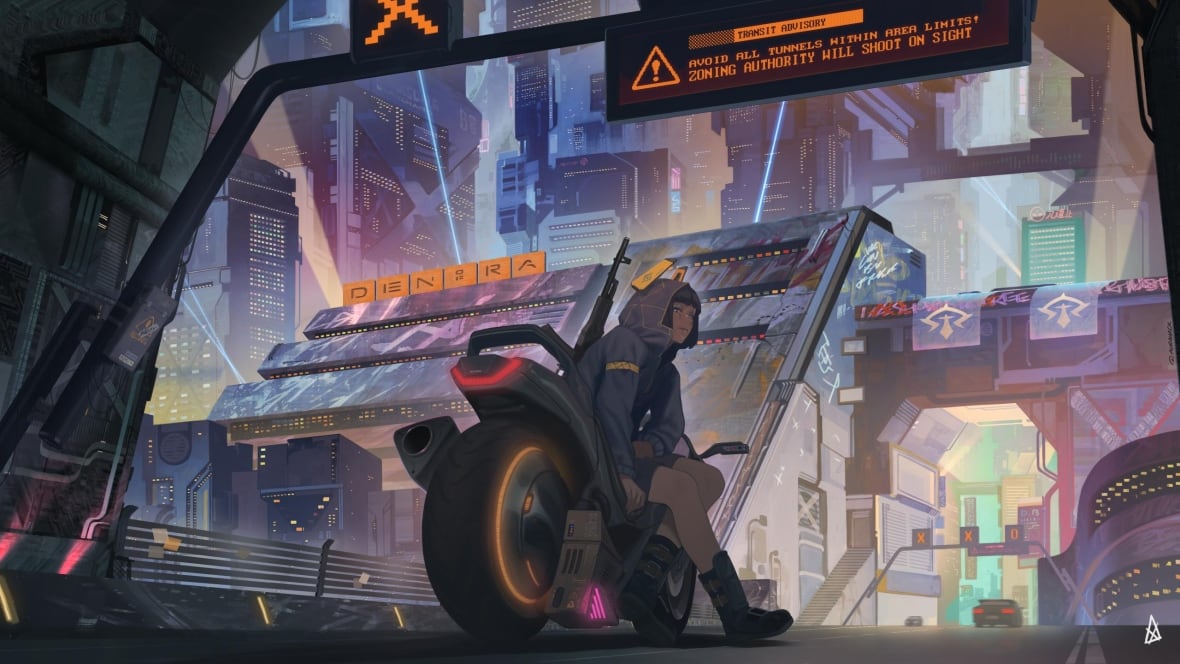How an anti-porn lobby on payment processors censored thousands of video games
Published: 2025-07-31 10:06:26 | Views: 17
Video game developers are speaking out after two popular PC games stores made it harder — even impossible — to purchase thousands of games and other digital artworks, as a result of pressure exerted by an Australian anti-porn advocacy group.
The takedown came after Collective Shout successfully lobbied payment networks and processors to stop facilitating financial transactions from storefronts Steam and Itch.io until games with certain content were removed.
But developers say the range of affected works goes well beyond games with explicit sex scenes. Also caught in the sweep are a teen-rated romantic comedy game, some LGBT-themed games by award-winning developer Robert Yang, and a 1920s alternate-history art book that has no sexual content.
"This is incredibly worrying," said Adrienne Bazir, a Toronto-based game developer and artist who makes LGBT games.
"Even just queer people holding hands is seen as not safe for work."
CBC spoke to over a dozen Canadian games developers, creators and industry watchers who say the situation highlights the power held by international financial institutions in determining what kinds of art is deemed acceptable for others to consume, and frequently forces LGBT content and narrative into the darkness.
What's happened so far?
In July, Collective Shout published an open letter saying Steam and Itch hosted games with "rape, incest and child sexual abuse" content.
About a week later, Steam removed hundreds of games with adult or sexual content from sale.
Steam, the world's largest storefront and management platform for PC games with a reported 132 million active monthly users, said in a statement that "certain games on Steam may violate the rules and standards set forth by our payment processors and their related card networks and banks."
It has the effect of shrinking the space available for diverse sexual expression.- Jean Ketterling, University of Saskatchewan
Payment processors include credit card companies like Visa and MasterCard, and other companies that can facilitate purchases like PayPal and Stripe.
Those games were removed from sale to ensure customers could purchase other titles and game content, the statement added.
On July 28, Itch, a relatively smaller player, deindexed all games and other works on its site with the NSFW (not safe for work) tag. That means you can't find those works on the site unless you know the exact name of the creator or game.
According to Game File reporter Nicole Carpenter, searching the NSFW tag on Itch before July 28 brought 7,167 results. Today, it surfaces five or fewer.
Itch's creator Leaf Corcoran said the site's staff is "conducting a comprehensive audit of content to ensure we can meet the requirements of our payment processors." He later said Itch is seeking other payment processors that are willing to work with platforms hosting adult content.
CBC reached out to several payment processors for comment. In a statement, Stripe said, "We do not support adult content," while PayPal replied that it will take action on anything "that violates the law, our policies, or the policies of our partner banks and card networks."
Risky business?
Collective Shout is an advocacy group that describes itself as a "movement against the objectification of women and the sexualization of girls." Its director, Melinda Tankard Reist, told CBC that her group reached out to payment processors after receiving no reply to about 3,000 emails sent to the Valve Corporation, which owns Steam.
Tankard Reist said the group was not seeking to have Itch deindex all its NSFW gaming content. However, developers, artists and other supporters say the campaign has affected works with sexual content that don't cross the line into abusive or illegal behaviour.

That statement doesn't ring true for Jean Ketterling, a University of Saskatchewan assistant professor who specializes in the study of sex and video games.
"This is a tried-and-true playbook. It has the effect of shrinking the space available for diverse sexual expression," she said.
Ketterling pointed to a long history of anti-porn or anti-sex work organizations campaigning against content they deem to be obscene, immoral or illegal. Similar recent cases involved lobbyists targeting payment processors for OnlyFans and Pornhub.
"We're seeing a lot of LGBTQ content come up. We're seeing a lot of stuff that's not even pornographic, but that is just exploring sexual violence or exploring the trans experience," she said.
Val Webber, a postdoctoral researcher at the Sexual Health and Gender Research Lab (SHAG) at Halifax's Dalhousie University, says "high-risk" categories for payment processors typically include items with a potential for fraud or that contain potentially illegal content — such as adult content, firearms, gambling and some medications.
But the processors' terms of service aren't always clear, leading to a wide interpretation of what kinds of content can be considered high-risk, she said.
"They're effectively in charge of creating de facto obscenity law without ever naming specific sexual acts or fantasies or content that is, in fact, not allowed on the platforms," she said.
Several Canadian developers and artists are frustrated that an Australian lobby group and U.S.-based payment processors have impacted their income.
"What we have is a situation where American financial institutions are able to do de facto censorship on a global scale against content that isn't illegal," said Ash Krieder, an independent romance writer based in Kitchener-Waterloo, Ont., whose works were deindexed from Itch. "This is hampering freedom of speech in our country."

Tankard Reist said location is irrelevant. "The internet has no borders. Women and girls everywhere are impacted by male violence against women and misogyny in general which we believed these games perpetuated."
The counter-campaign
Affected developers and their supporters have started phone campaigns and petitions to pressure payment processors to reverse their actions.
One site lists several email addresses and phone numbers for people to lodge their complaints with Visa, MasterCard and other payment companies.
"What we know about Collective Shout is that they managed to put pressure on those payments processors with only 1,000 calls or emails," said Bazir.
"And we're like, well, there's more than 1,000 of us, so we can beat that."
Source link








